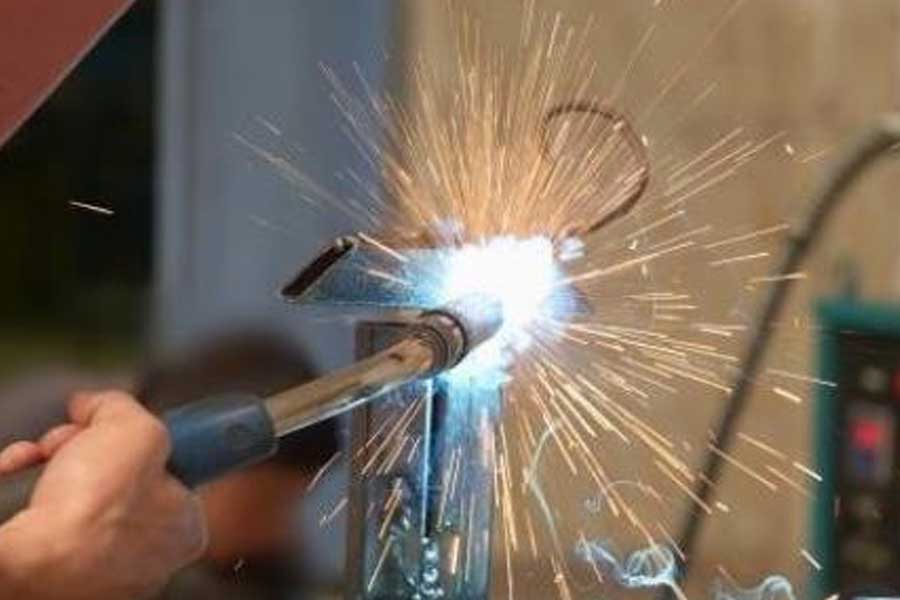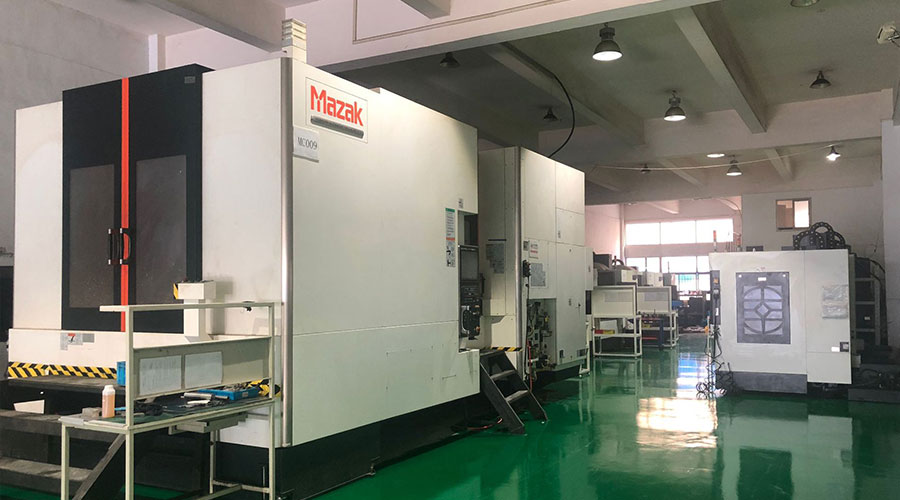When welding stainless steel pipes in petrochemical construction, the surface of the weld bead and the heat-affected zone are prone to oxidation and discoloration. In order to ensure the corrosion resistance of stainless steel, the weld is pickled and passivated after welding to form a dense layer on the surface. However, the inner wall of the stainless steel pipe often cannot be pickled and passivated, which seriously reduces the corrosion resistance of the inner wall of the stainless steel pipe. However, the general welding process and construction measures are difficult to guarantee the welding quality of the back bead and heat-affected zone (see Figure 1 and Figure 2), so the welding process must be improved and measures should be taken to prevent the back surface from oxidizing and discoloring.
1. Analysis of the causes of easy oxidation on the back and surface of stainless steel pipe welding
1) When the backside is filled with argon, it is difficult to completely drain the air in a vortex motion in the tube. Even if the replacement time is extended, the oxygen content can reach <0.01% (volume fraction) when the inner mouth is fully sealed, but the slope is opened. After the mouth starts welding, the oxygen content will rise to 0.05% (volume fraction) or even higher. The higher oxygen content eventually causes the back surface of the weld bead to oxidize and become blue or purple.
2) In on-site construction, welders generally use a simple argon arc welding torch that scratches and strikes the arc. This torch causes the high-temperature weld bead to lose the argon protection instantaneously after the arc is broken, which causes the joints of each arc to be easily oxidized. Discoloration.
3) Each time the arc joint is started, since air enters the inner opening through the open welding groove, it happens that the oxygen content in the inner opening is higher at this time, and the high-temperature weld bead is easy to be locally oxidized.
4) When filling and welding of the cover layer, the welding current is large, the welding heat input is large, or the interlayer temperature is high, the back of the welding bead will also oxidize and change color.
5) The low purity of argon gas and the high oxygen content will reduce the protection effect of the weld.
6) The thermal conductivity of stainless steel is poor, which is 1/3 of that of steel. The heat cannot be dissipated during welding, resulting in higher temperatures in the weld bead and heat-affected zone, which makes it easier to be oxidized.
2. The welding method of stainless steel
The best way to weld stainless steel is DC argon arc welding, manual arc welding, brazing and soft soldering. The above three methods are common stainless steel welding methods. For general civilian use, such as stainless steel doors and windows, stainless steel decorations, etc., DC argon arc welding machines can be used for welding.
However, manual electric welding of stainless steel is generally used when argon electric connection is required for large-scale structural products or large-scale pipeline welding.
Brazing and soldering are used when the strength basis is not too high, and it is used when it has a sealing effect, especially soft soldering, such as small defects in welding stainless steel that are often used in repairs, or the non-strength of special-shaped crafts Request products.

1. First of all, we must clean up the welded seam, remove the remaining oil, water, etc.;
2. The shielding gas argon should be pure, so that the welding effect has no color difference;
3. Minimize the gap between the weldments as much as possible. The tighter the gap, the better the effect;
4. If you want to use welding wire for filling, the welding wire must be thin, 0.8mm is fine;
5. The current should be small, as small as possible to melt the welding wire. The pulse current of the cold welding machine is less than 20;
6. How to choose a welding cold welding machine is also particular. Generally, a thin plate cold welding machine with energy storage pulse type such as a raw cold welding machine is used, and the current is relatively stable. Although the price of such a cold welding machine is a bit more expensive, the welding effect is obvious to all.
7. At the beginning, the welding technique is not proficient enough to produce the effect, but practice makes perfect, just practice more.
3. Welding process improvement
1) The oxygen in the shielding gas inside the mouth is the main cause of oxidation and discoloration of the weld bead and heat-affected zone, so the oxidation problem can be solved by removing the oxygen in the shielding gas. After the improved process, high purity argon with a purity of 99.999% is used as the welding gas, mixed gas (5%H2+95%Ar) is used as the back shielding gas, and the chemical reaction of hydrogen and oxygen at high temperatures is used to reduce the oxygen content in the tube.
2) The density of argon is higher than that of air. When replacing the air in the tube, the principle of low charge and high discharge shall be adopted, and at the same time, the charge and replacement time shall be appropriately extended.
3) Use welding machines and high-frequency arc welding guns that have the functions of slow current rise, current attenuation, early gas supply, and delayed gas stop. When the arc is just started, the burning arc is used to first burn the oxygen in the shielding gas, which prevents the weld bead from being oxidized when the arc is started. After the arc is broken, the high-temperature weld is still under the effective protection of argon gas, which prevents the joint Local oxidation and discoloration.
4) Increase the nozzle diameter and adopt nozzles of φ10~φ12mm to increase the protection range.
5) Tinfoil tape with good sealing performance is used to seal the groove, not paper tape.
6) When the final joint is closed, reduce the flow of argon gas. It is best to keep the flow rate of argon gas unchanged and open the exhaust on one side for the best welding effect.
7) The interpass and interlayer temperature control should not exceed 60℃. During welding, cooling copper pipes wrapped with circulating water on both sides of the weld or cotton damp cloth wrapped around both sides of the weld bead to cool down, reduce the high temperature of the weld bead Residence time.
8) The first three layers are welded by argon arc welding with small heat input, and at the same time, continue to fill the inner mouth with argon gas protection, and then use welding rod for welding after reaching a certain thickness. Regardless of whether it is argon arc welding or electrode arc welding, the current should be as small as possible, and the arc method of straight walking or micro-swing is adopted. The faster the welding speed is, the better under the premise of ensuring the welding quality, thereby reducing the welding heat input and avoiding welding. Road temperature is too high and oxidized.
Four. Concluding remarks
In the construction of a chemical plant, the stainless steel pipe cannot be pickled and passivated after welding, and the inner surface of the weld bead is not allowed to be oxidized during welding. The surface color of the weld bead and heat-affected zone must be silver-white. After welding with the above-mentioned technological measures in construction, the design and the requirements of the owner have been met, and the corrosion resistance of the stainless steel pipeline is guaranteed.
Link to this article:How to cleverly solve the problem of oxidation on the back side of stainless steel pipe welding?
Reprint Statement: If there are no special instructions, all articles on this site are original. Please indicate the source for reprinting:https://www.cncmachiningptj.com/,thanks!
 PTJ® provides a full range of Custom Precision cnc machining china services.ISO 9001:2015 &AS-9100 certified. 3, 4 and 5-axis rapid precision CNC machining services including milling, sheet metal to customer specifications,Capable of metal & plastic machined parts with +/-0.005 mm tolerance.Secondary services include CNC and conventional grinding, laser cutting,drilling,die casting,sheet metal and stamping.Providing prototypes, full production runs, technical support and full inspection.Serves the automotive, aerospace, mold&fixture,led lighting,medical,bicycle, and consumer electronics industries. On-time delivery.Tell us a little about your project’s budget and expected delivery time. We will strategize with you to provide the most cost-effective services to help you reach your target,Welcome to Contact us ( [email protected] ) directly for your new project.
PTJ® provides a full range of Custom Precision cnc machining china services.ISO 9001:2015 &AS-9100 certified. 3, 4 and 5-axis rapid precision CNC machining services including milling, sheet metal to customer specifications,Capable of metal & plastic machined parts with +/-0.005 mm tolerance.Secondary services include CNC and conventional grinding, laser cutting,drilling,die casting,sheet metal and stamping.Providing prototypes, full production runs, technical support and full inspection.Serves the automotive, aerospace, mold&fixture,led lighting,medical,bicycle, and consumer electronics industries. On-time delivery.Tell us a little about your project’s budget and expected delivery time. We will strategize with you to provide the most cost-effective services to help you reach your target,Welcome to Contact us ( [email protected] ) directly for your new project.
Link to this article:How to cleverly solve the problem of oxidation on the back side of stainless steel pipe welding?
Reprint Statement: If there are no special instructions, all articles on this site are original. Please indicate the source for reprinting.:Cut Wiki,Thanks!^^
